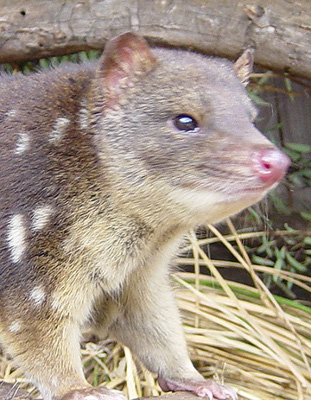Marsupial Shrews
Category: Marsupial

Facts about Marsupial shrews "Scientific name for Marsupial shrew is Phascolosorex". Marsupial shrew is a narrow-striped shrew that resembles a mouse and belongs to the Dasyuridae family. The Marsupial shrew are largely found in Indonesia, West Papua, and New Guinea. The natural home of Marsupial Shrews is tropical and subtropical, or arid forests.
Appearance of Marsupial shrew
The appearance of Marsupial Shrews resembles a mouse with the thick coat of a hedgehog. These breeds have broad feet. Marsupial Shrews have small hair and the body color differs from grey-cinnamon to brown-black, according to the variety. The Marsupial shrew have famous whiskers, big ears and a marked, pointed nose, offering them an overall mouse-like appearance. The length of the body of male Marsupial Shrews varies from 3 1/8 to 4 3/4 inches (80 mm to 120 mm), measured from the nose to the tail, whereas the female ones have a body length of 3 1/8 inches (80 mm). The male and female Marsupial Shrews carry a body weight of 6 ounces (170 grams) when matured. Sexual dimorphism takes place in the majority of species for both skeletal and weight measurements, with male breeds being usually bigger and heavier than females.
Diet of Marsupial shrew
Marsupial Shrews are tiny, carnivorous, mouse-like animals that chiefly feed on invertebrates, such as beetles as well as larvae, spiders and weevils. Some are severely earthy and track their food only at ground level, whereas other breeds are highly climbing in character. Most Marsupial Shrew breeds nest commonly in tree-hollows.
Reproduction of Marsupial shrew
Breeding in Marsupial Shrews is very much competitive. Male breeds generate huge amounts of testosterone and mate-guarding takes place in the form of prolonged copulation. The female Marsupial shrews can stock up sperm delivered by the males for a maximum period of three days in dedicated sperm-storage tombs in the ovary and they do not ovulate pending the conclusion of the reproductive season. Several litters have several paternities.
The average lifespan of Marsupial Shrews ranges from two to three years.

 Back To Category Marsupial
Back To Category Marsupial